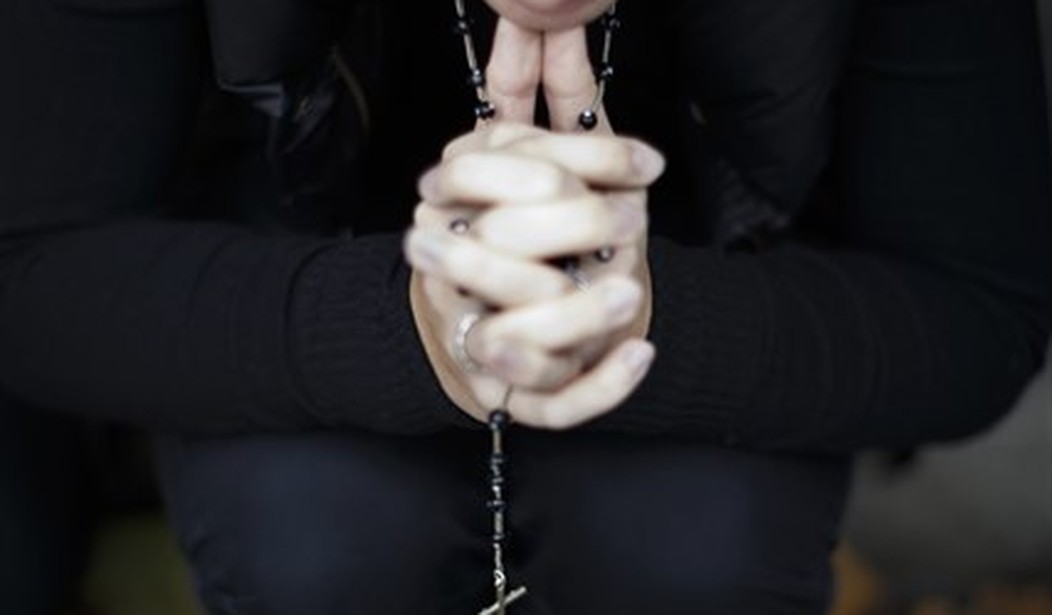As we celebrate Easter, the concept of forgiveness has been pressed on my heart. Perhaps that is because this specific season serves as a special time of reflection revolving around God’s tangible act of goodness and grace.
Forgiveness is a foundational principle that is frequently talked about both within and outside of the Church—yet, how many people know what true forgiveness looks like? It’s a common struggle that we cover on “Prayer Therapy with Dr. Phil” on pray.com, but here are a few basics that are helpful for us all to be reminded of.
What is Forgiveness?
Going through the motions, saying the words, “I forgive ___,”and trying to push painful memories under the emotional rug in our subconscious isn’t enough. If this is our forgiveness process, we are oftentimes left feeling still angry and resentful towards those we need to forgive. This is because although we have tried to forgive in our minds, we have yet to forgive in our hearts and that means we have to exercise our God given Free Will and choose to let go of our emotions about the transgression we believe we have suffered. We choose to turn it over to God instead of continuing to feel victimized.
Forgiveness from the depths of our hearts is a daunting process but it is a choice God gives us the strength to make. It is rather scary to think about reliving our pain and suffering; we think, ‘I’m out of that place. I don’t want to go back there. I just want to move on.’
But putting our past offenders into a compartmentalized box in the back of our minds, telling ourselves we have forgiven them when we really have not, hurts everyone. It hurts them because (whether they know it or not) they are robbed of grace and love from us—who are free to give it. It hurts us (and our loved ones) because it damages our other relationships, our state of health and our self-esteem. It hurts God because He knows the life of freedom and joy we all could experience—the life we are inherently bypassing by not walking in true heart forgiveness towards others.
Recommended
Forgiveness is not easy. On the contrary, it is one of the most difficult things we absolutely must do on this side of heaven. Forgiveness does not mean that what the person did was right or acceptable; rather, it means that we are able to ultimately overcome what was meant for evil, allowing God to transform our hearts and write beautiful redemption stories in our lives.
So, how do we truly forgive?
Resolve to choose to give up the harsh, destructive feelings of anger, resentment and bitterness.
Despite what the world tells us, it is not our right or privilege to harbor pernicious heart postures towards those who have hurt us. In fact, the longer we cling to these feelings, the more ingrained they become within the depths of our soul—and the harder they become to uproot. Rather, we are called to another standard; we must willingly give these up so that they will not poison us from the inside out and multiply from within us.
Let go of revenge—and cosmic revenge.
Forgiveness involves letting go of our desire to get even. When we hope to see another person hurt, embarrassed or paid back for what they have done to us—we can be assured that we have yet to forgive them. This mindset is an undeniable stronghold. Thankfully, there is hope. God’s sovereignty assures us that His power can demolish strongholds in our lives. We must be willing to surrender desire for revenge, allowing grace to take root within us and consume our hearts.
Choose not to focus on the offense.
While we will always retain certain memories of the past, they can serve as a chapter in our stories that no longer define us or rob us of joy and freedom. We don’t have to read from that book of pain every day. We can put it on a “back shelf,” and choose to move forward.
Love them, pray for them, and bless them.
I firmly believe it is impossible to remain wholly passive or neutral towards those who have hurt us. Therefore, to truly combat unforgiveness, it is absolutely necessary to turn hatred on its head by intentionally choosing to love, serve and pray for our offenders. It's incredibly hard to resent someone when we are making every effort to meet them with genuine kindness. That doesn’t necessarily mean you have to interact with them at all. This is between you and God, and it may all take place within your heart. Every situation is different, but the constant is the grace with which you manage yourself.
In light of the present Easter season, I am left to ponder the depth of forgiveness Christ stepped into for us all. Jesus was the perfect example of quintessential forgiveness and pure love. Though He was beaten, mocked and left hanging on a cross, in his last moments He lovingly asked God to forgive those persecuting Him. This is real love.
As we celebrate Easter with our families this season, may we consider those laid upon our hearts who need our forgiveness and love. Whether they are deserving or not, we must forgive as God has chosen to forgive us. On the other side of true forgiveness is real joy, contagious love and transformative freedom.
Dr. Phil McGraw, one of the most well-known and trusted mental health professionals in the world and host of daytime TV’s top-rated program “Dr. Phil,” earned a doctoral degree in clinical psychology from the University of North Texas, followed by a post-doctoral fellowship in forensic psychology from the Wilmington Institute. He brings his faith-influenced expertise to the Pray.com app with “Prayer Therapy with Dr. Phil,” available now exclusively on Pray.com, the #1 app for prayer and faith-based content.

























Join the conversation as a VIP Member